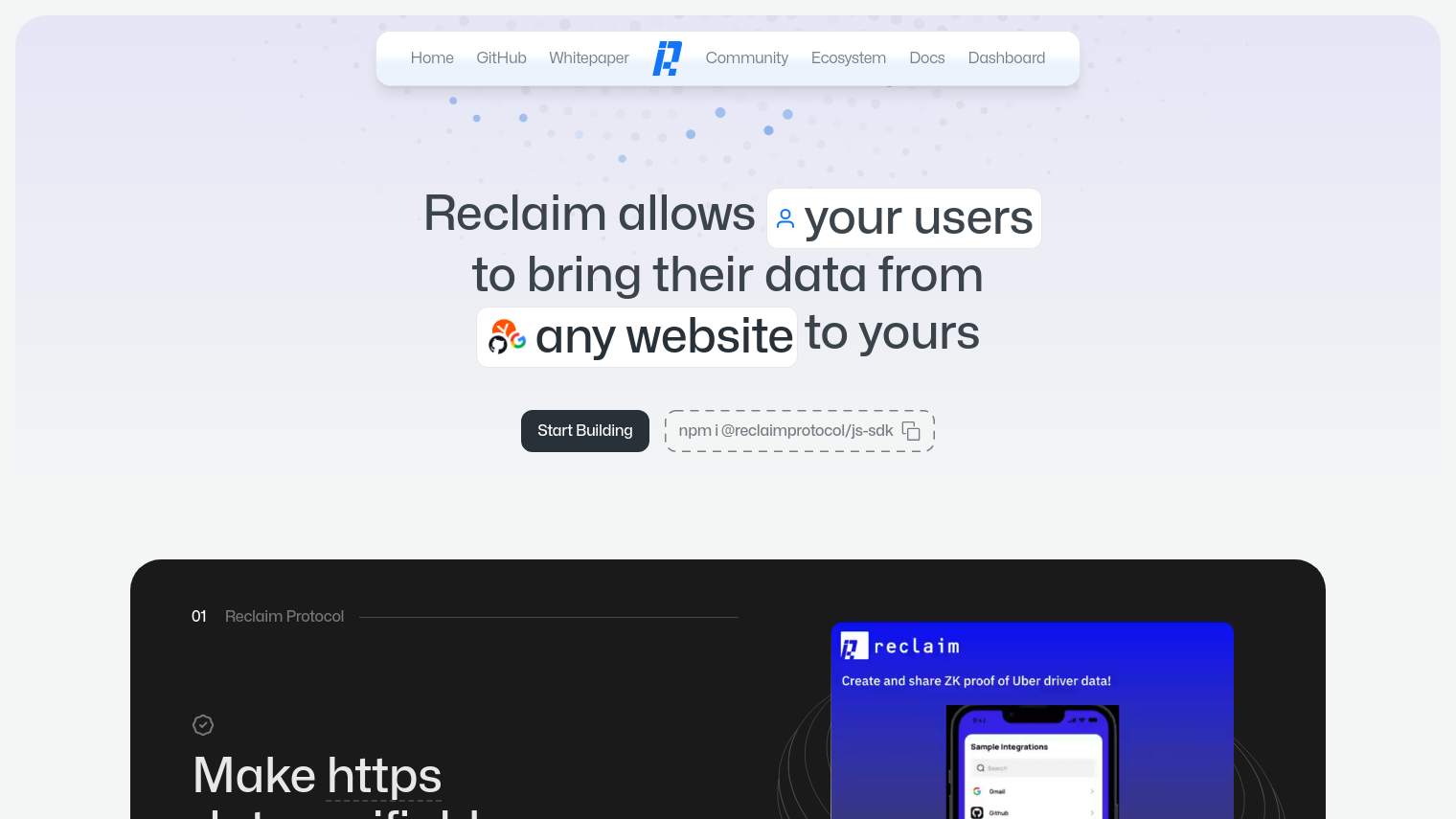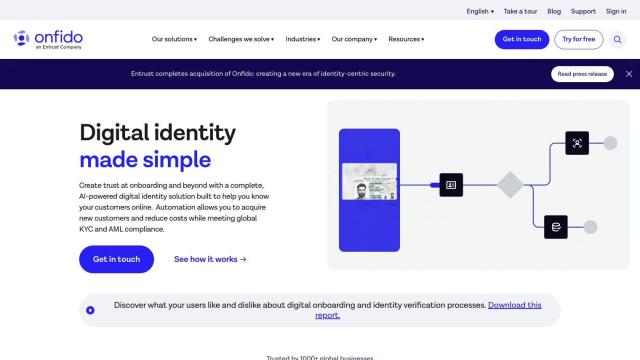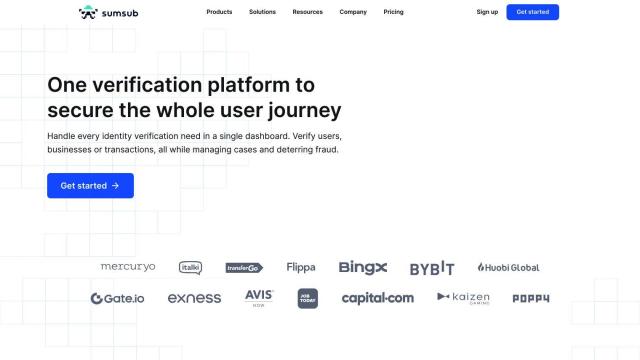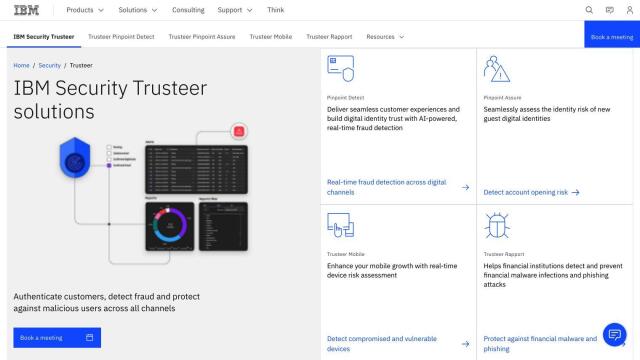Reclaim Protocol uses digital signatures, called zero knowledge proof, to establish users' identities and reputation based on their activity on any website. That technology can be used to improve HTTPS security by digitally signing website responses so cryptographic proof of data integrity is possible, for example to prove bank balances or Uber ride history. That proof is generated entirely on the client side, which means it's private and secure.
Some of Reclaim Protocol's features include:
- Onboarding and Loyalty: Users can import their user profiles and activity from other websites.
- KYC: Users can prove they have completed KYC (Know Your Customer) processes on other websites and apps.
- Onchain Attestations: Users can create and verify onchain attestations.
- Proof of Personhood: Users can prove they are a unique human, not a bot.
Reclaim Protocol works by sending HTTPS requests through proxies that sign website responses digitally. Those signatures then can be used to create a cryptographic proof of data integrity, for example to prove that a bank balance or Uber ride history is genuine.
Reclaim can be used for a variety of use cases, including identity verification, onboarding and loyalty programs. The SDK lets developers integrate Reclaim into their apps so users can prove their identity and reputation securely across different services.
Reclaim Protocol has been used by more than 50 apps, including gaming platforms like CSFloat and Truehuman, identity platforms like Ratofy and c0loria, and DeFi platforms like Amelia and Nexuspay.
Reclaim is supported by a dedicated development team that ensures the software is stable and up-to-date. Developers can use the published software or maintain their own versions by copying the repositories. The protocol is designed to be decentralized, with plans to add nodes run by other parties in the future.
Pricing is based on the need for managed services and developer tools. Users can use Reclaim Protocol for free by running their own instances. But those using the maintained software will have to pay for that service.
Published on June 10, 2024
Related Questions
Tool Suggestions
Analyzing Reclaim Protocol...







